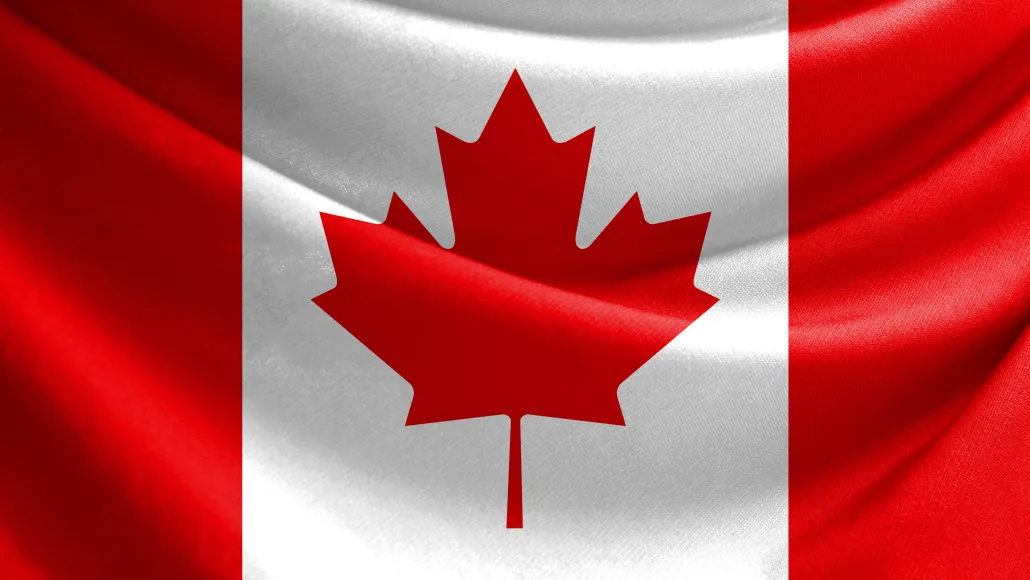Did you hear Canada’s healthcare system needs over 60,000 nurses by 2026? Holy cow, that number floored me! If you’re a nurse dreaming of a fresh start, nurse jobs in Canada with visa sponsorship are calling your name. I’ve always pictured myself helping folks in a new country, and Canada’s got that perfect mix of opportunity and maple syrup charm. When I first looked into working abroad, I botched it big-time—wrong visa forms, sloppy applications, you name it. Those mess-ups taught me how to nail this process, though. In this post, I’m dishing all my hard-earned tips: what these jobs are like, how to snag visa sponsorship, and how to stand out. Let’s dive into your next big adventure, eh?
Why Choose Nurse Jobs in Canada?
Man, nursing in Canada is like finding a unicorn job. A while back, I was burned out in a dead-end gig, daydreaming about better options. Then I learned Canada’s healthcare system is screaming for nurses—60,000 openings by 2026! That means job security and employers who’ll roll out the red carpet with visa sponsorship. Salaries are sweet, too; registered nurses (RNs) earn C$35–$50 an hour, sometimes hitting C$90,000 a year. I met a nurse in Toronto who said she cleared C$80,000 working in a hospital. Not bad, right?
But it’s more than money. Canada’s got this chill vibe—think snowy mountains, friendly folks, and universal healthcare. I thought it’d be all work, no play, but nurses get decent downtime to explore. Picture hiking in Banff after a shift! My buddy applied for a job without checking the province’s needs and got rejected. Don’t do that. Target high-demand spots like Ontario or British Columbia, where employers like Vancouver Coastal Health sponsor visas. The lifestyle’s a win, too—safe cities, great schools, and poutine on every corner. Just don’t make my mistake of thinking it’s a breeze; research employers who sponsor, and you’re set for a life-changing move.
Pro tip: match the job to your passion. Love kids? Pediatric nursing’s huge. Into high-stakes stuff? ER roles are calling. I wasted time chasing random jobs when I should’ve focused on my strengths. Also, connect with Canadian nurses online—they’re super open about tips. Canada offers job stability, a rad lifestyle, and a chance to make a difference. Get it right, and you’ll be living the dream.
Understanding Visa Sponsorship for Nurses
Okay, visa sponsorship’s a bit of a beast, but I got you. When I first tried moving abroad, I thought sponsorship was just a fancy word for “job offer.” Nope! It’s when a Canadian employer backs your work visa so you can legally nurse there. I screwed up once by applying for a visa without a job offer—total rookie move. My application tanked faster than a bad shift.
Canada offers visas like the Temporary Foreign Worker Program (TFWP) or the Express Entry system for nurses. The TFWP’s common for healthcare, tying you to a specific employer. Express Entry’s better for permanent residency, especially if you’re an RN. You need a job offer, clean health and police checks, and proof of credentials. I know a nurse who forgot to mention a minor traffic fine, and her visa got held up for ages. Be honest! Nursing’s on Canada’s In-Demand Occupations List, so employers are eager to sponsor.
Eligibility’s tough but doable. You’ll need a nursing degree or diploma, a valid license (or eligibility to register with a provincial body like the College of Nurses of Ontario), and often 1–2 years of experience. Health checks include stuff like TB tests. I panicked during mine, thinking a flu shot would mess it up. It didn’t. Tip: start your visa paperwork early. I dragged my feet and missed a killer job in Alberta. Check Immigration, Refugees and Citizenship Canada (IRCC) for updates, ’cause rules shift. It’s like learning to chart a new patient—tricky at first, but you’ll get the hang of it.
Qualifications and Requirements for Nurse Jobs
Let’s talk what you need to land nurse jobs in Canada. It’s not just scrubs and a stethoscope, trust me. I applied for a gig once without checking my credentials—big oof. You need a nursing degree or diploma recognized by Canada. If you trained abroad, get your credentials assessed by the National Nursing Assessment Service (NNAS). I thought my degree was enough, but NNAS took months. Start early!
Experience matters. Most jobs want 1–2 years in a hospital or clinic. I tried applying fresh out of school—yeah, no dice. You’ll also need to register with a provincial nursing body, like the British Columbia College of Nurses and Midwives. This means passing the NCLEX-RN for RNs or a similar exam for practical nurses. I bombed a practice test ’cause I didn’t study Canada’s healthcare system. Brush up on that! Language skills are key, too—English or French, depending on the province. I took an IELTS test and barely passed; practice makes perfect.
Health and background checks are non-negotiable. Think medical exams and police clearances. I freaked out about a background check ’cause of a parking ticket. Chill, it’s fine if it’s minor. Pro tip: get specialty certs, like critical care or pediatrics, to stand out. I got a wound care cert, and it made my CV pop. Also, know Canada’s nursing standards—they’re strict about patient safety. Messing up there’s like forgetting to wash your hands before a shift. Get these requirements locked in, and you’re ready to shine.
Top Industries Hiring Nurses in Canada
Canada’s healthcare scene is buzzing, and nurses are in hot demand. I used to think it was all hospitals—wrong! Hospitals are huge, with places like Toronto General hiring RNs for ER, ICU, and surgical units. I applied to a hospital job without knowing their specialty needs and got ghosted. Check the hospital’s focus first! Long-term care’s another biggie, especially with Canada’s aging population. Nursing homes need nurses for elder care, and it’s rewarding if you love building connections.
Community health is popping, too. Think home care or public health clinics, like those run by Alberta Health Services. I did a stint in community nursing, and visiting patients at home was a game-changer. Mental health nursing’s growing fast, with roles in psychiatric facilities or outpatient programs. I missed a mental health job ’cause I didn’t have the right cert—don’t sleep on extra training. Rural and remote areas, like Nunavut, are desperate for nurses and often offer visa sponsorship plus bonuses.
Each industry’s got its flavor. Hospitals are intense; long-term care’s slower-paced; community health’s flexible. I chased hospital jobs when community care suited me better. Figure out your vibe. Tip: look for employers like Fraser Health that advertise visa sponsorship. I learned to scan job ads for “sponsorship available” to save time. Wherever you land, Canada’s healthcare system needs you—pick a path and make a difference!
How to Find Nurse Jobs with Visa Sponsorship
Finding nurse jobs with visa sponsorship is like hunting for the perfect pair of scrubs—takes effort, but worth it. I started my search blindly, applying to random jobs. Total waste of time. Online job boards are your best bet. Indeed, Monster, and Workopolis have tons of listings. Filter for “visa sponsorship” or “registered nurse” to cut the noise. I skipped filters once and spent hours sorting irrelevant ads. Set up alerts to stay on top.
Recruitment agencies are a lifesaver. Agencies like HealthCare Australia or Canadian Health Labs specialize in sponsored nursing roles. I worked with one, and they lined up interviews I’d never have found. But watch out—some agencies charge sketchy fees. IRCC’s website lists legit employers open to sponsorship. I ignored it at first, thinking it was just visa stuff. Nope, it’s got job leads! Networking’s huge, too. LinkedIn’s great for connecting with Canadian nurses or recruiters. I messaged a hiring manager once—boom, interview.
Don’t make my mistake of sending generic applications. Tailor your CV to highlight nursing experience and visa needs. I got ignored until I started customizing. Also, join nursing forums or Facebook groups. I found a job lead in a group chat that wasn’t even posted. It’s a hustle, but landing that sponsored job feels like acing a tough shift. Keep at it, and you’ll find your spot.
Application Process and Tips for Success
Applying for nurse jobs in Canada is no walk in the park, but I’ve got your back. My first application was a mess—typos, weak CV, the works. Your CV’s gotta shine. List your nursing degree, licenses, and experience clearly. I used a generic CV once, and it screamed “next!” Customize it, like “Registered Nurse with 2 years ICU experience, seeking visa sponsorship.” Keep it two pages, max.
Your cover letter’s your chance to stand out. I wrote a boring one early on—no bites. Make it personal: why Canada, why nursing, why that employer. I landed an interview by sharing a story about calming a scared patient. Mention visa sponsorship, but don’t beg. Proofread, too—I sent one with the hospital’s name wrong. Yikes. Also, get your NNAS assessment done before applying; it’s a must for international nurses.
Interviews are make-or-break. Expect questions like “How do you handle stress?” or “Why Canada?” I choked in my first interview, rambling about moose. Prep answers about patient care, teamwork, and your skills. If it’s virtual, test your tech—my camera froze once, so embarrassing. Work with IRCC early for visa stuff. I delayed my paperwork and stressed myself out. Stay organized, tailor everything, and you’ll be rocking a Canadian nursing gig in no time.
Conclusion
Wow, what a journey! Nurse jobs in Canada with visa sponsorship for 2025/2026 are your shot at an amazing career—solid pay, a caring community, and a chance to grow. From sorting out visas to acing applications, every step’s a chance to show your passion. I’ve shared my wins and flops to help you dodge the same pitfalls. Whether you’re drawn to hospitals or rural clinics, pick a role that lights you up. Don’t cut corners, though—a sloppy CV or skipped visa step can trip you up. Patient safety’s everything, so always bring your A-game. Ready to dive in? Use these tips, tweak them for your goals, and start applying. Got your own nursing job hacks? Share ’em in the comments—I’m all ears! Let’s get you caring for Canadians soon!



